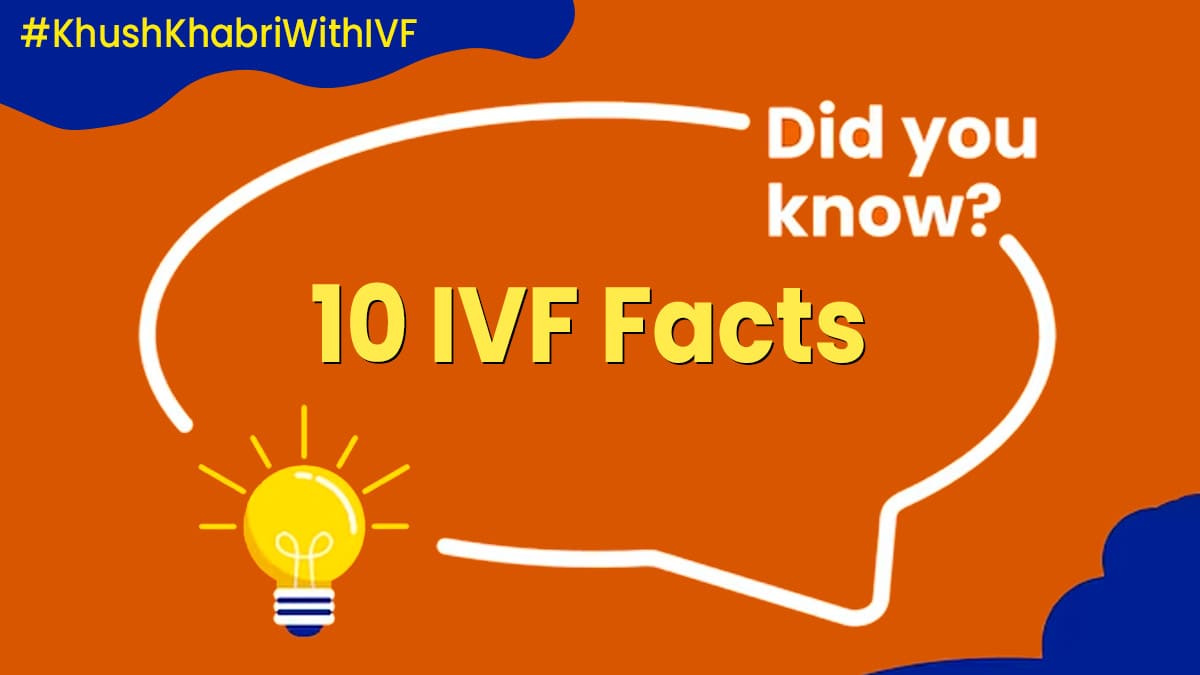
IVF is becoming popular and here are some amazing facts
about this fertility treatment that you wouldn't want to miss.
#KhushKhabriWithIVF: Gone are the days when people used to wait for
years to conceive naturally. Over the time, couples have turned to different
techniques like in vitro fertilisation to embrace parenthood. If statistics are
to be believed, around 2.5 lakh IVF cycles are done yearly in India with a
growth rate of about 20%. This shows the growing acceptance of fertility
treatments. This World IVF day 2023, let us share some interesting facts about
IVF that you may not have heard before. Scroll down to read and follow our
?Khush Khabri With IVF? campaign for more informative pieces on IVF.
Here
are ten amazing facts about IVF shared by Dr. Sunitha Mahesh, Senior Consultant, Feto Maternal Medicine & Medical
Director, Milann Fertility & Birthing Hospital, JP Nagar, Bangalore:
#1 Historic Milestone: The first successful
IVF baby, Louise Brown, was born on July 25, 1978, in the United Kingdom. She
was the world's first ?test-tube baby?. The first Indian IVF baby, who also
happens to be the second in the world is Kanupriya Agarwal, born on October 3,
1978.
#2 Natural Twin Boom: IVF has contributed to a significant increase in the number
of twins and triplets being born. Multiple embryos transferred during the
procedure is one of the major reasons for the surge in twins and other higher
order pregnancies.
#3 Frozen Embryos: With the advent of
better technologies for storage of embryos, mainly vitrification, embryos can
be kept frozen and transferred into the uterus when conditions are most
optimal. Some babies born through IVF are called "snowflake babies"
because they were conceived from frozen embryos.
#4 High Success Rates: Over the years, IVF
success rates have significantly improved, with advanced technologies and
techniques leading to better outcomes for couples trying to conceive.
Currently, the success rate is between 30% to 50%, young women having the
highest chances.
#5 Global Impact: IVF has enabled
millions of couples around the world to achieve parenthood, making it one of
the most impactful advances in reproductive medicine.
#6 Embryo Selection: Preimplantation
Genetic Testing (PGT) allows scientists to screen embryos for genetic
abnormalities before transfer, reducing the risk of certain genetic conditions.
PGT allows for the selection and transfer of the best quality embryos having
the most potential for development.
#7 Egg Freezing: IVF has also led to
revolutionary advancements made in the field of egg freezing. Decline in the
quality and quantity of eggs in women as they age is a well known fact. Egg
freezing allows women to freeze their eggs when they are younger and use them
later in life to improve their chances of conceiving.
#8 IVF for Endangered Species: IVF techniques have
also been employed for endangered species as part of conservation efforts
to increase the genetic diversity and survival chances of critically endangered
animals.
#9 Record-Breaking IVF: In 1992, the Guinness
World Record recognized the oldest woman to give birth through IVF, who was 63
years old at the time.
#10 IVF and Stem Cell
Research: IVF has also been instrumental in advancing stem cell
research and regenerative medicine, as it allows scientists to obtain
early-stage human embryos for study.
While IVF has provided hope and happiness to countless families worldwide, it's essential to acknowledge that each person's fertility journey is unique, and IVF may not be the right path for everyone.
We use cookies and IP addresses to improve site performance and understand user interests. This data does not personally identify you unless you voluntarily provide information. Third-party advertisers may also use cookies.
OKPrivacy Policy